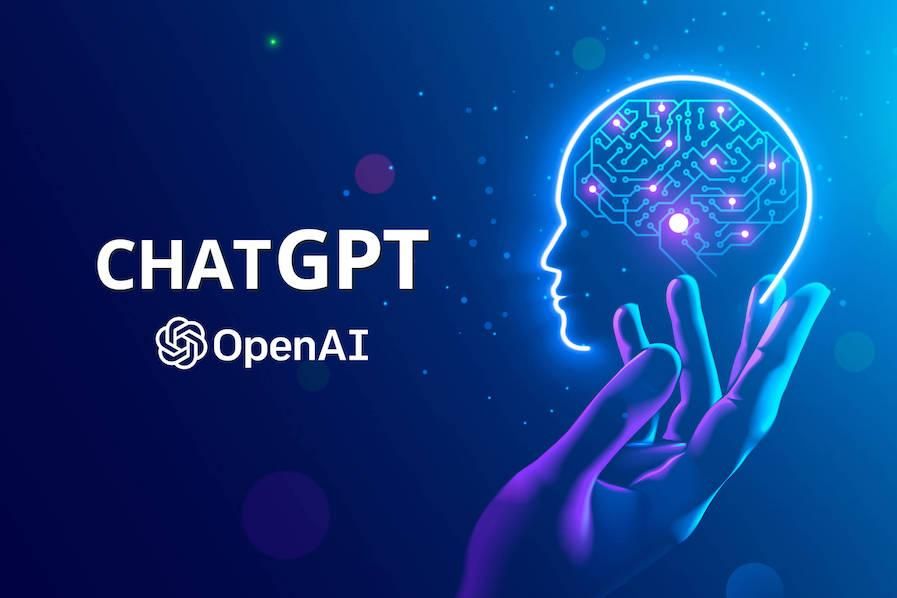Ascension Wisconsin Librarians support your health care decisions with evidence-based research and full text resources.
Tuesday, March 21, 2023
AW Library Newsletter - March 2023: ChatGPT and AI in Healthcare - Sterile Processing Standards - CK Updates - New eBooks - Nurses Choice
Monday, March 20, 2023
Sterile Processing Standards (AAMI / ANSI) at Ascension
Sterile Processing / Reprocessing Standards - AAMI / ANSI
See: The Ascension Sterile Processing Support (Internal) Website [via The Resource Group]
To access, sign in with your Ascension credentials. This page is NOT available to non-Ascension people.
This is an internal Ascension website that includes multiple AAMI / ANSI standards, guidelines, and technical documents relative to sterile processing in healthcare.
This link is already included on the following Library web pages:
Nursing Specialties for
You can also find this resource by using the Discover tool on our AW Library Website to search our Database List OR the AW Library catalog for any of the following:
- Ascension Sterile Processing
- sterile processing
- preprocessing standards
- AAMI
- ANSI
- or any of the specific titles and codes listed below ...
Reprocessing Standards:
ST41:2008/(R)2018
Ethylene oxide sterilization in health care facilities: Safety and effectiveness
ST58:2013/(R)2018
Chemical Sterilization and high-level disinfection in health care facilities
ST65:2008/(R)2018
Processing of reusable Surgical textiles for use in health care facilities
ST79:2017
Comprehensive guide to steam sterilization and sterility assurance in health care facilities
ST79:2017 Amendments
ST91:2021
Flexible and semi-rigid endoscope processing in health care facilities
Technical Information Reports:
TIR17:2017/(R)2020
Compatibility of materials subject to sterilization
AAMI TIR30:2011/(R)2016
A compendium of processes, materials, test methods, and acceptance criteria for cleaning reusable medical devices
TIR34:2014/(R)2021
Water for the reprocessing of medical devices
TIR63:2014/(R)2020
Management of loaned critical and semi-critical medical devices that require sterilization or high-level disinfection
TIR68:2018/(R)2022 Low and intermediate-level disinfection in healthcare settings for medical devices and patient care equipment and sterile processing environmental services
Additional Resources:
ISO 13485:2016/(R)2019
Medical Devices - Quality management systems - Requirements for regulatory purposes
ST90:2017
Processing of health care products - Quality management systems for processing in health care facilities
PB70:2012
Liquid barrier performance and classification of protective apparel and drapes intended for use in health care facilities
Brought to your attention by your Ascension Wisconsin Librarians:
Michele Matucheski and Kellee Selden
Saturday, March 18, 2023
Navigating the Legal Aspects of ChatGPT in Medicine
- Head 1 is like a search engine / Librarian who shows you were information is.
- Head 2 is a quick reader who can analyze content and context, but sometimes hallucinates, gets drunk and lies.
- Head 3 is a grammar guru who can also do quick synthesis
There are abundant possibilities for using large language model technologies such as ChatGPT
to improve and expand access to services. But there are risks, including privacy, bias,
and unsafe systems that do not work. How might existing and emerging laws address the risks
and help us capture the benefits of AI for medicine?
Join I.AIM for a panel discussion with
- Daniel W. Linna Jr., JD, Northwestern Pritzker School of Law and McCormick School of Engineering, and
- Andrea Lee Linna, JD, Partner and Co-Lead of the Digital Health, Technology and Innovation practice group at McGuireWoods LLP. They'll talk about the legal landscape for AI in medicine and will share potential directions for future regulation.
- Cathy Gao, MD, Pulmonary and Critical Care Medicine,
- Mohammad Hosseini, PhD, Postdoctoral Scholar in Preventative Medicine, and
- Alex Carvalho, MD, MPH, Infectious Diseases, will share clinical and ethical perspectives on how legal quandaries of AI technologies may affect healthcare.
|
|
Friday, March 17, 2023
Nurses Choice Recommended Reading - March 2023
March 2023 |
Thursday, March 16, 2023
The Promise (and peril) of AI-enabled Healthcare
With artificial intelligence (AI) chatbots growing in prominence, many people are testing their potential applications in many areas, including healthcare. However, experts say that significant work will likely need to be done before these chatbots can be a useful resource for either patients or providers. This Daily Briefing article from Advisory Board discusses the potential uses of AI chatbots in medical education, clinical support and administrative tasks, along with their pitfalls. | |
Brought to your attention by your Ascension Wisconsin Librarians: Michele Matucheski and Kellee Selden |
Tuesday, March 14, 2023
New eBook: High Reliability Organizations
AW Library Services has purchased the following ebook, now available statewide across Ascension Wisconsin:
2 New eBooks: Perioperative Care of the Pregnant Woman (AWOHNN) and Pocket Guide to Neonatal Nutrition
by AWOHNN
c 2019
c 2023
Monday, March 13, 2023
What is ChatGPT?
What is ChatGPT?
ChatGPT is a chatbot using a language model artificial intelligence (AI). It was designed to answer questions based on training data that goes through November 2021.1
How does ChatGPT work?
ChatGPT was trained to simulate human writing. Its algorithm uses probability to decide what word might come next in a string. So, although its answers may often sound plausible, the information generated cannot be relied upon to be accurate.2
When should I use ChatGPT?
Check out ChatGPT when you need help brainstorming and organizing your writing but be aware of the risks of outdated and inaccurate content. Note that this AI will make up fake citations that look legitimate but don’t actually exist!3
When should I NOT use ChatGPT?
ChatGPT was NOT designed to help with diagnosis, treatment, and other medical applications. Although some types of AI may be trained to analyze X-Rays or perform other diagnostic tasks, ChatGPT was specifically designed to make up content to mimic human communication.
Benefits of ChatGPT
- It can be fun to play with!
- It furthers the technology and offers a great learning opportunity4
Pitfalls of ChatGPT
- ChatGPT contains no information newer than 2021
- ChatGPT does not have access to full text that sits behind a paywall (such as many key medical books and journals)
- ChatGPT will create false facts based on the questions you ask
- ChatGPT will create fake citations to support its answers to your questions
Note on BioGPT
A similar program, BioGPT was trained on biomedical journals but has similar pitfalls as ChatGPT, making up entirely inaccurate answers.5
References
- 1. Can artificial intelligence help for scientific writing?Salvagno M, ChatGPT, Taccone FS, Gerli AG. Crit Care. 2023 Feb 25;27(1):75. doi: 10.1186/s13054-023-04380-2. PMID: 36841840; PMCID: PMC9960412.
- 2. Nonhuman “Authors” and Implications for the Integrity of Scientific Publication and Medical Knowledge.Flanagin A, Bibbins-Domingo K, Berkwits M, Christiansen SL. JAMA. 2023;329(8):637–639. doi:10.1001/jama.2023.1344
- 3. Artificial Hallucinations in ChatGPT: Implications in Scientific WritingAlkaissi H, McFarlane SI. Cureus. 2023 Feb 19;15(2):e35179. doi: 10.7759/cureus.35179. PMID: 36811129; PMCID: PMC9939079.
- 4. ChatGPT: five priorities for researchvan Dis EAM, Bollen J, Zuidema W, van Rooij R, Bockting CL. Nature. 2023 Feb;614(7947):224-226. doi: 10.1038/d41586-023-00288-7. PMID: 36737653.
- 5. Microsoft Released an AI That Answers Medical Questions, But It’s Wildly InaccurateSpichak S. Neoscope. 2023 Mar 7.
Friday, March 10, 2023
Wellcome Displays Art that Shares the Pain of Migraine
Between 1980 and 1987 the British Migraine Association ran four art competitions to share impressions from across the world of people’s experience of migraine.
Competitors were asked to express the pain created by the condition, using any material and any medium, including crayon, charcoal, oils, and watercolour. Most of the participants had no artistic background.
The competition attracted 545 unique, often striking works of art that are now being curated before being displayed by the Wellcome Collection later this year. As a prelude to a full exhibition, Wellcome has published a selection online, with notes from Rada Vlatkovic, the collection’s information officer, who explains the history of the competition and reflects on her own experience of migraine.
Learn more at The Migraine Art Competition - Wellcome Collection
Thursday, March 9, 2023
Clinical Key Content Updates - February 2023
The content of Clinical Key is constantly being updated. Here are the August highlights.
Clinical Key Search Tips & Tutorials
Clinical Key Content Updates - February 2023
The following books have been added to ClinicalKey for the month of February:
- MacSween’s Pathology of the Liver (Burt, Alastair) 8th ed; ISBN: 9780702082283; Package/Collection: Pathology Extended; New edition (replaces 9780702066979);
- Pediatric Hematology & Oncology Secrets (Weiner, Michael) 2nd ed; ISBN: 9780323810470; Package/Collection: Hematology-Oncology-Palliative; New to CK;
- Practical Pulmonary Pathology (Smith, Maxwell L.) 4th ed; ISBN: 9780323795470; Package/Collection: Pathology Extended; New edition (replaces 9780323442848);
- Textbook of SARS-CoV-2 and COVID-19 (Mani, Subramani) 1st ed; ISBN: 9780323875394; Package/Collection: Infectious Disease; New to CK.
Monday, March 6, 2023
Did you know MyLearning includes a Library with over 20,00 eBooks and more than 3,600 Audio Books?
Log into MyLearning and click on Library on the LEFT side of the home page.
Brought to y by Your Ascension Wisconsin Librarians: Michele Matucheski & Kellee Selden Our AW Library website is available 24/7. |



.jpg)









.png)
.png)

